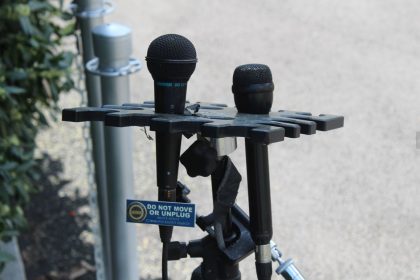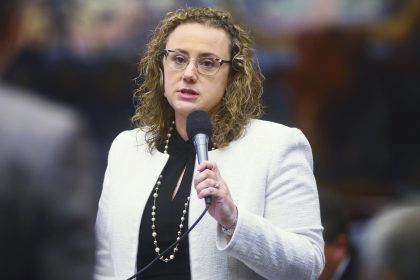Justice Dept. Reverses Policy on Surveillance of Journalists

WASHINGTON — The Justice Department announced a policy change late last month intended to protect the news media from the long arms of the law.
The new policy bans nearly all subpoenas, search warrants and other legal tactics against journalists while they are gathering the news.
The exception would be if they are acting outside the scope of their authority by engaging in criminal behavior.
The reversal of a Trump-era policy that sometimes allowed monitoring of journalists was welcomed by media organizations.
“This is a watershed moment,” said Bruce D. Brown, executive director of the nonprofit Reporters Committee for Freedom of the Press. “The new policy marks a historic shift in protecting the rights of news organizations reporting on stories of critical public importance.”
The policy change follows reports last year that the Justice Department sought phone and email records of reporters at The Washington Post, CNN and the New York Times.
U.S. attorneys were investigating the source of news leaks that revealed classified information during the Trump administration.
The Justice Department disclosed the investigations publicly this year, prompting President Joe Biden to call seizure of reporters’ phone records “simply wrong.”
The announcement was met with outrage by media organizations. They said the investigations would put a chill on their First Amendment right to report the news and the public’s right to know.
U.S. Attorney General Merrick Garland explained the policy change by saying in a statement, “These regulations recognize the crucial role that a free and independent press plays in our democracy.”
He said in a memo to employees that the Justice Manual of guidelines the department follows would be updated to include the revised regulations. Employees who might be affected by them will receive training on them.
The training is supposed to help them balance competing concerns, such as “protecting national security” and “ensuring public safety,” before using surveillance techniques on reporters, according to the Justice Department.
In addition to criminal activity, exceptions to ending the investigations include surveillance of journalists working for foreign governments or affiliated with terrorist groups.
The new policy also does not apply to “an imminent or concrete risk of death or serious bodily harm, including terrorist acts, kidnappings, specified offenses against a minor … or incapacitation or destruction of critical infrastructure,” the Justice Department said.
Tom can be reached at [email protected] or on Twitter at @tramstack.























